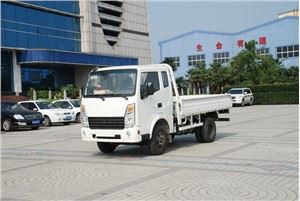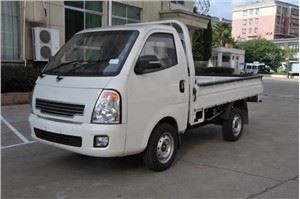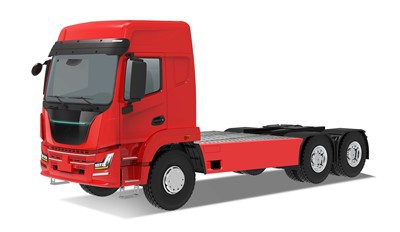Understanding Vactor Vacuum Trucks: Essential Equipment for Efficient Cleaning and Waste Management
Vactor vacuum trucks are specialized machines designed for efficient cleaning and waste management in various industries. These powerful vehicles combine suction and pressure technologies to handle a wide range of tasks, such as sewage and stormwater maintenance, industrial cleaning, and more. In this article, we will explore the features, benefits, and best practices associated with vactor vacuum trucks, providing insights for operators and companies looking to invest in this essential equipment.
What is a Vactor Vacuum Truck?
A vactor vacuum truck is a versatile vehicle equipped with a high-powered vacuum system that allows it to remove liquid and semi-solid waste materials from various environments. These trucks are often used in municipal maintenance, construction, and industrial sectors to perform tasks such as:
- Suctioning debris from catch basins
- Cleansing and maintaining sewer lines
- Removing sludge and other waste materials from industrial sites
- Excavating soil and other materials in tight spaces
Key Components of Vactor Vacuum Trucks
1. Vacuum System
The heart of a vactor vacuum truck is its vacuum system, which is essential for suctioning waste. This system typically consists of:
- Vacuum Pump: Generates suction to pull in waste materials.
- Storage Tank: Collects and holds the materials once they are suctioned in.
- Filter System: Ensures that debris and contaminants do not escape back into the environment.
2. Pressure System
Many vactor trucks also feature a pressure cleaning system, which can be used to wash surfaces before suctioning. Key components include:
- Water Tank: Holds water for cleaning applications.
- Water Pump: Pressurizes water to enhance cleaning efficiency.
- Hose and Nozzle: Control the flow and direction of water during the cleaning process.
3. Chassis and Vehicle Body
The chassis is the vehicle’s foundation, typically built on a sturdy truck frame capable of supporting the weight of the machinery and waste materials. Key features include:

- Axles: Designed to handle heavy loads.
- Cabs: Often equipped with ergonomics for the operator’s comfort.
Types of Vactor Vacuum Trucks
1. Combination Trucks
Combination vactor trucks integrate both vacuum and pressure technologies, making them highly versatile for a range of applications. Ideal for municipalities, they can clean sewer lines and catch basins effectively.
2. Dedicated Vacuum Trucks
These trucks focus purely on suction capabilities, lacking pressure washing systems. They are excellent for specialized tasks, such as hazardous waste removal or industrial cleaning, where vacuum capabilities are the primary need.
Applications of Vactor Vacuum Trucks
1. Municipal Services
Vactor vacuum trucks play a critical role in maintaining city infrastructure. Common applications include:
- Sewer Cleaning: Regular cleaning prevents blockages and ensures effective waste flow.
- Stormwater Management: Removes debris from retention ponds and catch basins to prevent flooding.
2. Environmental Cleanup
These trucks are also invaluable for environmental cleanups, where they are used to remove contaminated soil, oil spills, and other hazardous materials to maintain public safety and environmental health.
3. Industrial Cleaning
In factories and industrial sites, vactor trucks help clean up spills, remove waste products, and even assist in maintenance of machinery by cleaning out areas that may be difficult to access manually.
Choosing the Right Vactor Vacuum Truck
1. Assess Your Needs
Evaluate the specific tasks you need the truck to perform. A combination truck may be best for general municipal work, while a dedicated vacuum truck may be preferred for specialized industrial applications.
2. Consider Tank Size
The size of the storage tank is crucial and should be matched to the volume of waste you expect to collect. A larger tank can minimize downtime during collection, but may also increase the truck’s weight and reduce maneuverability.
3. Evaluate Features
Look for features such as:
- Automated Controls: For easier operation.
- Safety Features: Such as backup cameras and alarms.
- Fuel Efficiency: More efficient vehicles can save costs in the long run.
Operating and Maintaining Vactor Vacuum Trucks
1. Operator Training
Proper training for operators is essential to ensure safe and effective use. Operators should understand how to:
- Properly set up and operate the vacuum and pressure systems.
- Perform safety checks before operating the truck.
2. Routine Maintenance
Regular maintenance keeps vactor trucks in optimal condition and includes:
- Checking and replacing filters.
- Inspecting hoses and nozzles for signs of wear.
- Regularly servicing pumps and other mechanical components.
3. Proper Waste Disposal
Adhering to regulations regarding waste disposal is vital. Operators must ensure collected waste is taken to appropriate disposal sites, especially if hazardous materials are involved.
Environmental Considerations
1. Eco-Friendly Practices
Vactor vacuum trucks can promote environmentally friendly practices. Recommendations include:
- Using biodegradable cleaning agents when pressure washing.
- Implementing practices to minimize spills during waste collection.
2. Compliance with Regulations
Operators must stay updated on local regulations regarding waste disposal and environmental impacts to avoid fines and ensure public safety.
Cost of Vactor Vacuum Trucks
1. Purchase vs. Rental

Organizations often face the dilemma of purchasing versus renting vactor vacuum trucks. Consider the following:

| Factor | Purchase | Rental |
|---|---|---|
| Initial Investment | High | Lower |
| Maintenance Responsibilities | Owner | Rental Company |
| Usage Frequency | High usage | Occasional projects |
| Customization Options | Extensive | Limited |
2. Operational Costs
Operating a vactor vacuum truck involves additional costs, including:
- Fuel consumption
- Insurance and permits
- Staff training
- Regular maintenance and repairs
FAQ Section
1. What is the average lifespan of a vactor vacuum truck?
The average lifespan of a well-maintained vactor vacuum truck ranges from 10 to 15 years, depending on usage and maintenance practices.
2. How much does a vactor vacuum truck cost?
The cost of a new vactor vacuum truck can vary widely, typically ranging from $200,000 to $500,000, depending on the size and specifications of the truck.
3. Can a vactor vacuum truck be used for hazardous waste removal?
Yes, vactor vacuum trucks can be equipped for hazardous waste removal; however, operators must comply with all local regulations regarding hazardous waste handling and disposal.
4. How do I increase the efficiency of my vactor vacuum truck?
To improve efficiency, ensure regular maintenance, train operators thoroughly, and choose the right truck for the specific tasks required.
5. What safety precautions should be taken while operating a vactor vacuum truck?
Operators should conduct pre-operation safety checks, wear appropriate personal protective equipment, and ensure that bystanders are at a safe distance during operation.
6. Are there environmental impacts associated with vactor vacuum truck operations?
If not managed correctly, vactor vacuum trucks can pose environmental risks. Operators should practice responsible waste disposal and adhere to environmental regulations to minimize impacts.
